As a long-time gaming enthusiast and industry expert, I’ve watched esports transform from a niche hobby into a billion-dollar industry. This explosive growth has created countless career opportunities beyond just being a professional player.
I’ve spent years exploring the diverse paths available in esports, from team management and event production to broadcasting and marketing. Whether you’re a skilled gamer or simply passionate about the industry, there’s likely a role that matches your talents. The esports ecosystem now rivals traditional sports in terms of career diversity, with positions in business development, content creation, and even legal services becoming increasingly vital.
Key Takeaways
- The esports industry has grown into a $1.38 billion global market, with projected growth to $1.87 billion by 2025, offering diverse career opportunities beyond professional gaming
- Career paths range from professional players ($50,000-$500,000 annually) to technical roles like game development ($65,000-$180,000), with specialized positions in broadcasting, marketing, and team management
- Business roles generate 75% of industry revenue through sponsorships, media rights, and merchandise sales, with sponsorship managers securing deals worth $50,000 to $2 million
- Technical and production careers form the backbone of esports operations, requiring specific certifications like Unity Developer or CCNA, with salaries ranging from $45,000 to $180,000
- The industry shows a strong 22% annual growth rate, with significant expansion in broadcasting (35%), corporate roles (42%), and technical positions (28%), particularly in the Asia-Pacific region
Careers In Esports
The esports industry’s explosive growth has transformed it into a global entertainment powerhouse. I’ve observed the market evolve from local LAN tournaments to massive international events with multi-million dollar prize pools.
Market Size and Growth Projections
 The global esports market reached $1.38 billion in 2022 with projected growth to $1.87 billion by 2025. Live streaming revenue accounts for 64% of total market value, followed by sponsorships at 21% and media rights at 15%. Major game publishers like Riot Games, Valve Corporation, and Activision Blizzard contribute substantially through tournament organization and game development.
The global esports market reached $1.38 billion in 2022 with projected growth to $1.87 billion by 2025. Live streaming revenue accounts for 64% of total market value, followed by sponsorships at 21% and media rights at 15%. Major game publishers like Riot Games, Valve Corporation, and Activision Blizzard contribute substantially through tournament organization and game development.
| Revenue Stream | Percentage |
|---|---|
| Live Streaming | 64% |
| Sponsorships | 21% |
| Media Rights | 15% |
Regional Development Trends
Asia Pacific leads the global esports market with 57% market share, driven by South Korea China. North America ranks second at 24% market share, with established leagues like the NBA 2K League LCS. Europe maintains 17% market share through prominent tournaments:
- ESL Pro League
- LEC (League of Legends European Championship)
- European Regional League
- Rising internet penetration
- Mobile esports adoption
- Local tournament infrastructure
- Regional broadcasting partnerships
Popular Career Paths in Esports
The esports industry offers diverse career opportunities across multiple sectors. Here’s a detailed look at three primary career paths that form the backbone of professional competitive gaming.
Professional Players and Teams
Professional esports players earn between $50,000 to $500,000 annually through tournament winnings, streaming revenue, and team salaries. Top teams maintain rosters in multiple games like League of Legends, Dota 2, and CS:GO. Professional players dedicate 8-12 hours daily to practice sessions, team scrimmages, and strategy meetings. Career advancement paths include transitioning to coaching, analysis, or content creation after competitive retirement.
| Income Source | Percentage of Total Earnings |
|---|---|
| Base Salary | 40% |
| Tournament Winnings | 35% |
| Streaming Revenue | 15% |
| Sponsorships | 10% |
Coaching and Team Management
Esports coaches earn $45,000 to $120,000 annually while developing team strategies and managing player performance. Team managers oversee operations, coordinate schedules, and handle player contracts. Key responsibilities include:
- Analyzing opponent gameplay footage
- Creating practice schedules
- Implementing training programs
- Managing team dynamics
- Coordinating with sponsors
- Developing recruitment strategies
- Technical Directors: Manage live production equipment
- Observers: Control in-game camera movements
- Shoutcasters: Provide play-by-play commentary
- Analysts: Offer expert game insights
- Stage Managers: Coordinate venue operations
- Production Assistants: Support technical setup
| Role | Average Annual Salary |
|---|---|
| Technical Director | $85,000 |
| Observer | $45,000 |
| Shoutcaster | $60,000 |
| Analyst | $55,000 |
| Stage Manager | $50,000 |
Business and Marketing Roles
The business side of esports creates revenue streams through strategic partnerships, content distribution, and brand development. These roles generate 75% of the industry’s total revenue through sponsorships, media rights, and merchandise sales.
Sponsorship and Partnership Management
Sponsorship managers in esports secure deals with brands ranging from $50,000 to $2 million per partnership. My research shows these professionals negotiate contracts with endemic sponsors (gaming hardware companies, energy drinks) and non-endemic brands (automotive companies, financial institutions). Partnership managers track ROI metrics including brand exposure minutes, social media impressions, and conversion rates. The average salary for sponsorship managers ranges from $65,000 to $110,000 annually.
Social Media and Content Creation
Social media managers in esports engage with audiences across multiple platforms including Twitter, Instagram, and TikTok. Content creators produce 3-5 pieces of original content daily, including match highlights, player interviews, and behind-the-scenes footage. The role combines community management skills with analytics expertise to track engagement rates and audience growth. Entry-level positions start at $45,000, while senior content strategists earn up to $95,000 annually.
Brand Development
Brand managers establish unique team identities through merchandise lines, visual assets, and marketing campaigns. These professionals oversee 4-6 seasonal merchandise drops generating $500,000 to $2 million in annual revenue per organization. The role requires expertise in merchandise design, supply chain management, and fan engagement strategies. Brand development directors earn between $85,000 to $150,000 annually based on organization size and market reach.
| Role | Entry-Level Salary | Senior-Level Salary | Key Revenue Metrics |
|---|---|---|---|
| Sponsorship Manager | $65,000 | $110,000 | Partnership value: $50K-$2M |
| Social Media Manager | $45,000 | $95,000 | Daily content: 3-5 pieces |
| Brand Manager | $85,000 | $150,000 | Merchandise revenue: $500K-$2M |
Technical and Production Careers![]()
Technical production forms the backbone of esports operations, encompassing roles that create seamless gaming experiences through advanced technology integration. Here’s a detailed look at the essential technical careers in esports:
Game Development and Design
Game developers create the foundation of esports through specialized programming skills in C++, Java & Unity. Senior developers earn $120,000-$180,000 annually, while entry-level positions start at $65,000. Key technical positions include:
- Engine programmers focusing on game mechanics & physics
- Network engineers ensuring stable multiplayer connectivity
- UI/UX designers creating intuitive player interfaces
- Quality assurance testers identifying bugs & gameplay issues
Tournament Operations
Tournament operations specialists manage the technical infrastructure of esports competitions. The average salary ranges from $55,000-$95,000, with responsibilities spanning:
- Stage managers coordinating equipment setup & maintenance
- IT administrators maintaining server stability
- Network engineers ensuring low-latency connections
- Production coordinators synchronizing multiple video feeds
- Technical directors overseeing broadcast systems
- Encoding specialists optimizing stream quality
- CDN administrators managing content delivery
- Platform developers creating custom streaming solutions
- Broadcast engineers handling live production equipment
- Analytics specialists monitoring stream performance metrics
| Technical Role | Entry-Level Salary | Senior-Level Salary |
|---|---|---|
| Game Developer | $65,000 | $180,000 |
| Tournament Ops | $55,000 | $95,000 |
| Stream Tech | $45,000 | $85,000 |
Skills and Education Requirements
Educational requirements in esports vary based on specific roles, combining technical expertise with industry knowledge. The following certifications and programs provide structured pathways into the esports industry.
Gaming Industry Certifications
Core certifications enhance career prospects in specific esports domains:
- Unity Certified Developer certification focuses on game development fundamentals
- Cisco Certified Network Associate (CCNA) validates network infrastructure expertise
- Esports Management Professional Certificate by ISDE covers business operations
- AWS Game Tech certification specializes in cloud solutions for gaming platforms
- Adobe Certified Expert certification develops essential content creation skills
- Bachelor’s in Esports Management at Full Sail University
- Bachelor’s in Gaming and Esports at Becker College
- BS in Esports Production at University of California, Irvine
- Master’s in Esports Business at University of New Haven
- Associate’s in Esports Event Management at Harrisburg University
| Degree Level | Average Program Duration | Starting Salary Range |
|---|---|---|
| Associate’s | 2 years | $35,000 – $45,000 |
| Bachelor’s | 4 years | $45,000 – $65,000 |
| Master’s | 2 years | $65,000 – $95,000 |
Salary Expectations and Job Outlook
The esports industry offers competitive salary ranges across various roles, with compensation varying based on experience level, geographic location, and specific job functions.
| Career Path | Entry Level | Mid-Level | Senior Level |
|---|---|---|---|
| Professional Player | $50,000 | $150,000 | $500,000+ |
| Team Manager | $45,000 | $75,000 | $120,000 |
| Marketing Director | $65,000 | $95,000 | $150,000 |
| Game Developer | $65,000 | $110,000 | $180,000 |
| Tournament Producer | $55,000 | $85,000 | $130,000 |
The job market in esports continues to expand at a 22% annual growth rate, creating new positions across multiple sectors:
- Broadcasting roles increased 35% in 2023, including positions for:
- Stream directors
- Technical producers
- Content strategists
- Corporate opportunities grew 42% year-over-year, encompassing:
- Partnership managers
- Business development executives
- Data analysts
- Technical positions expanded 28%, featuring roles in:
- Game development
- Network infrastructure
- Cybersecurity
Major esports organizations report a 15% increase in hiring budgets for 2024, with particular emphasis on:
- Remote work positions up 65% from 2022
- Hybrid roles accounting for 45% of new openings
- Full-time on-site positions concentrated in gaming hubs like Los Angeles, Seoul, Shanghai
The Asia-Pacific region leads job creation with 38% of new positions, followed by North America at 32% and Europe at 25%. Entry-level positions typically require 2-3 years of relevant experience, while senior roles demand 5-7 years of industry expertise plus demonstrated leadership capabilities.
The esports industry has evolved into a dynamic career landscape that extends far beyond professional gaming. I’ve seen firsthand how this sector offers incredible opportunities for passionate individuals with diverse skill sets and backgrounds.
Whether you’re drawn to the technical side of game development the strategic elements of team management or the creative aspects of content production there’s likely a role that matches your interests. The competitive salaries growing job market and expanding global reach make this an exciting time to pursue an esports career.
I believe the future of esports careers looks brighter than ever. With continued industry growth and technological advancement now’s the perfect time to start your journey in this thriving digital sports ecosystem.

